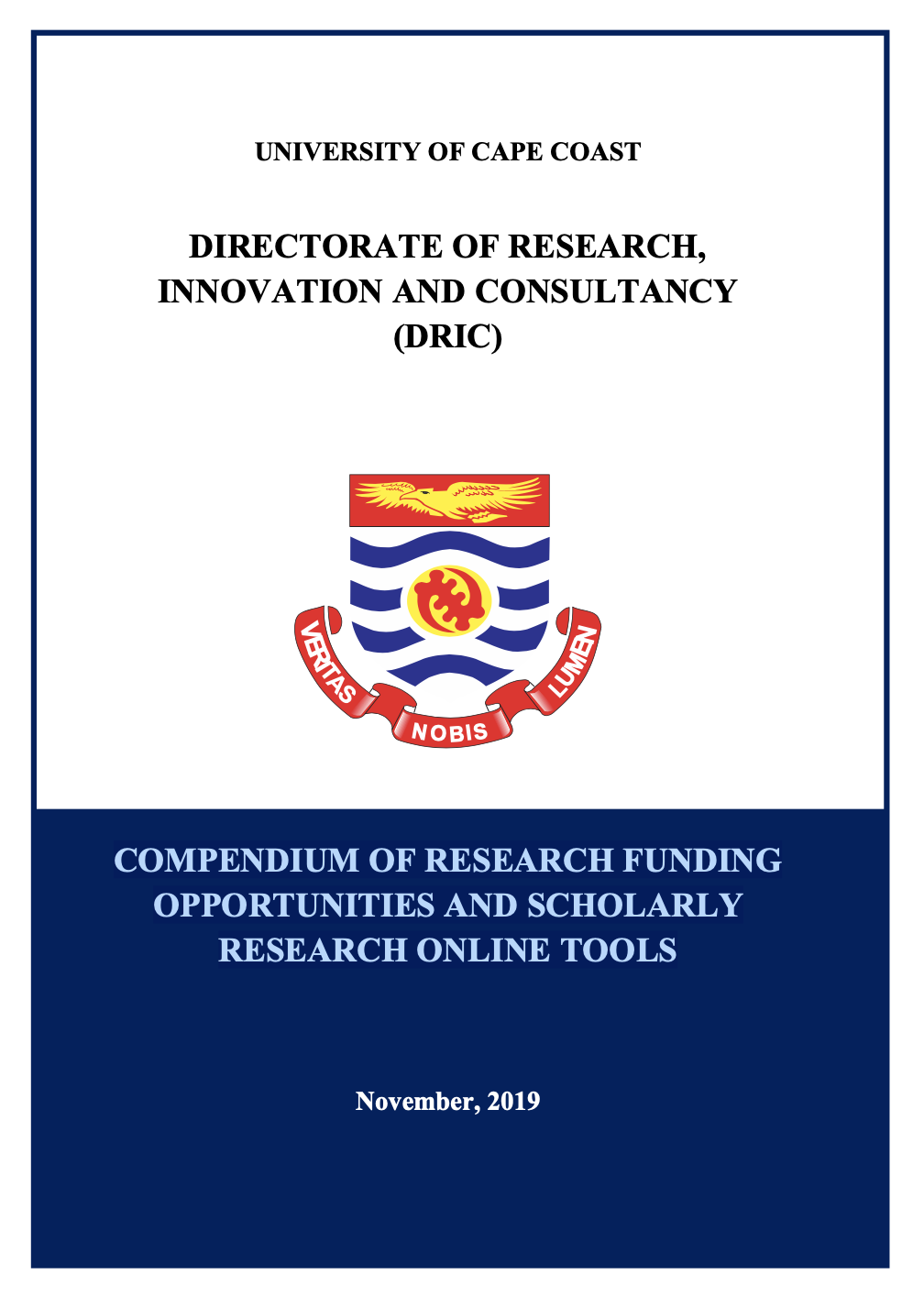NATIONAL COMPETITIVE TENDERING (N. C. T.)
Construction of Transport Yard and Auto Service Centre, Completion of Front Facade of CoDE Multipurpose Building, Remodeling of 2-Bedroom Residence into Offices at Tesano-Accra, and Construction of Plinths and Pavement Walkways at the Proposed Science Market Relocation
1. The University of Cape Coast intends to apply part of its Budgetary Allocation of Funds and Internally Generated Funds (BAF) for the following contract for:
| IFT No. | DESCRIPTION | WH CLASS |
|---|---|---|
| CR/UCC/WK/0004/2019 | Construction of Transport Yard and Auto Service Centre for University of Cape Coast | D2 K2 |
| CR/UCC/WK/0024/2019 | Completion of Front Facade of CoDE Multipurpose Building at University of Cape Coast | D3 K3 |
| CR/UCC/WK/0025/2019 | Remodeling of 2-Bedroom Residence into Offices at Tesano-Accra for University of Cape Coast | D2 K2 |
| CR/UCC/WK/0027/2019 | Construction of Plinths and Pavement Walkways at the Proposed Science Market Relocation for University of Cape Coast | D2 K2 |
2. The University of Cape Coast invites sealed Tenders from eligible Contractors for the execution of the above works. Tendering will be conducted through the National Competitive Tendering (NCT) procedures specified in the Public Procurement Act, 2003 (Act 663) as amended by Act 914, 2016 and the Guidelines of the Public Procurement Authority of the Republic of Ghana.
3.Interested eligible Tenderers may obtain further information from The Directorate of Physical Development and Estate Management, University of Cape Coast, Cape Coast, and inspect the bidding document at the address and location given from 9.00 am to 4.00 pm local time each day.
4. A complete set of Tender documents in English may be purchased by interested Tenderers on the submission of a written application to the address below and upon the payment of a non-refundable fee of Five Hundred Ghana Cedis (GH¢500.00) for each document. The method of payment will be by cash, or bank draft to University of Cape Coast. The document will be obtained personally.
5. Tenders must be deposited in the Tender Box located at the Director’s Office, Directorate of Physical Development and Estate Management First Floor, University of Cape Coast at or before 11:00 am, Thursday, December 5, 2019.
6. Tenders shall be valid for a period of 90 days after the deadline of Tender submission. All tenders must be accompanied by a Tender Security of not less than two percent (2%) of the Tender Price from a reputable Bank in Ghana. Late Tenders will be rejected. Tenders will be opened in the presence of Tenderers’ representatives who choose to attend at the Director’s Office, Directorate of Physical Development and Estate Management, University of Cape Coast and at the time specified above.
7. All tenders must be accompanied by:
Valid Business registration certificate, VAT Certificate, Valid Tax Clearance Certificate, valid SSNIT Clearance certificate, Public Procurement Authority’s(PPA) Registration Certificate, Works and Housing Certificate and other Relevant Works Certificates.
8. Address for inspection and Purchase of Tender Documents:
Procurement Office
Directorate of Physical Development and Estate Management, Old Site
University of Cape Coast
Telephone: 233-3321-32480, 32483, 0240712498, 0332091104






